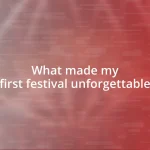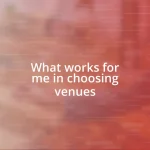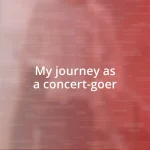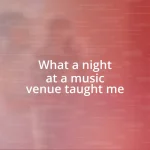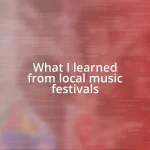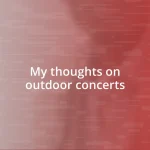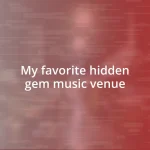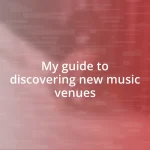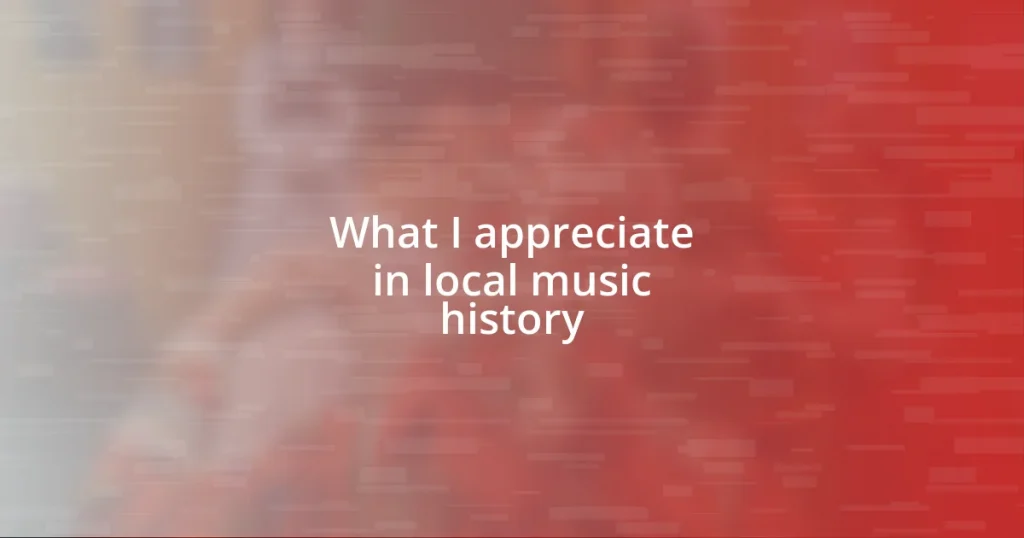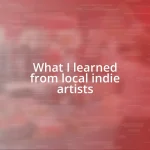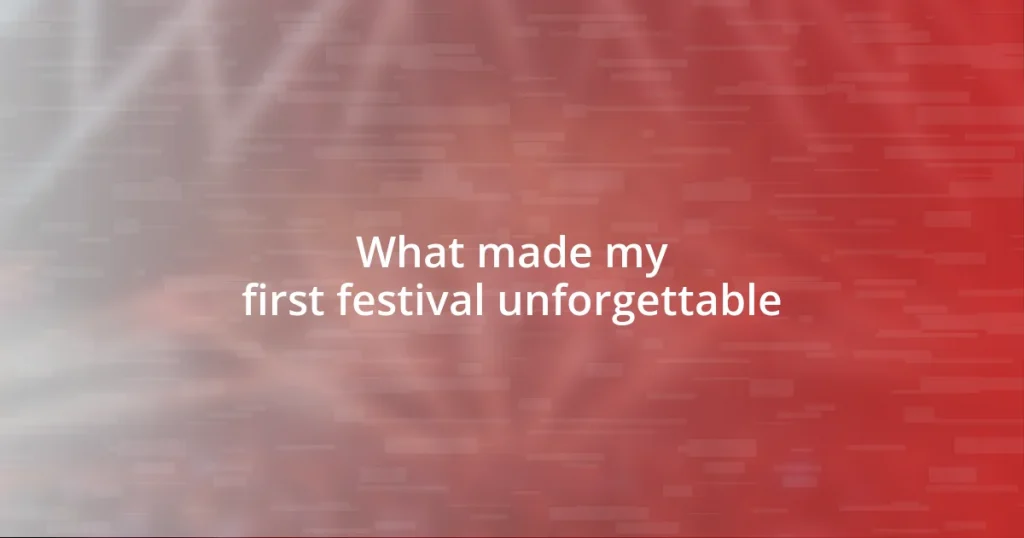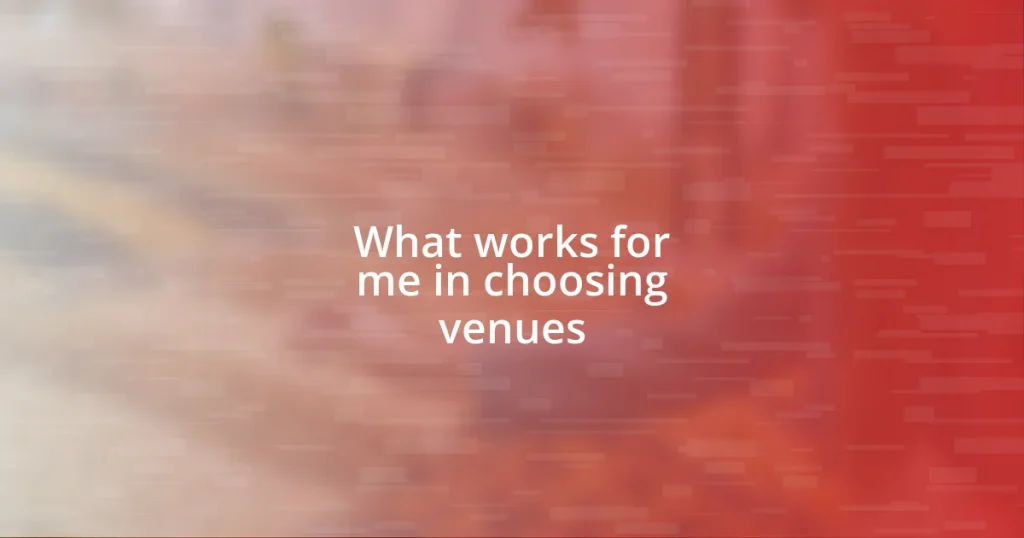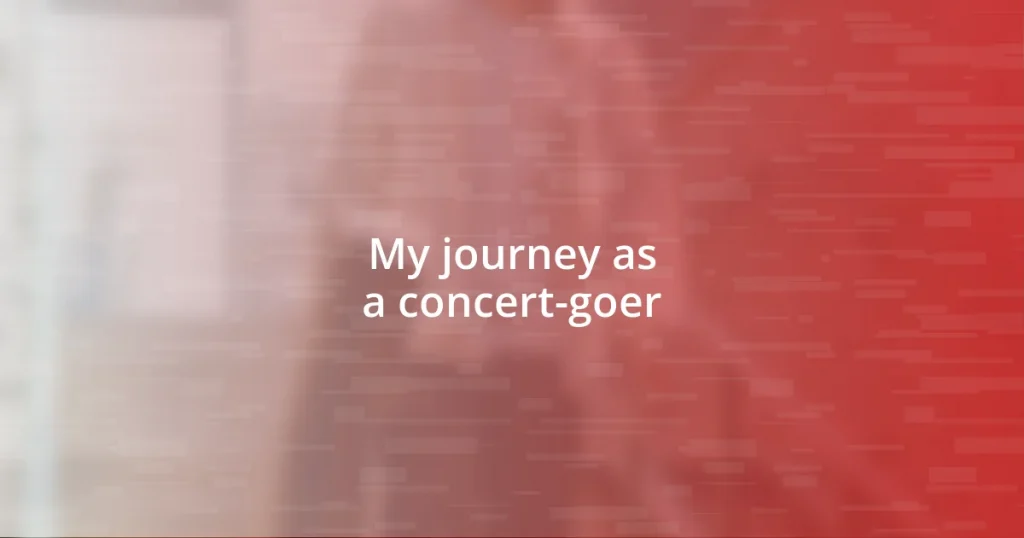Key takeaways:
- Local music reflects community culture, with genres and artists expressing socio-political influences and personal experiences.
- Key genres like folk, jazz, and hip-hop showcase the evolution of local music and connect audiences through storytelling and shared narratives.
- Preservation efforts, such as digitizing old recordings and hosting music festivals, are essential for maintaining cultural identity and fostering new talent.
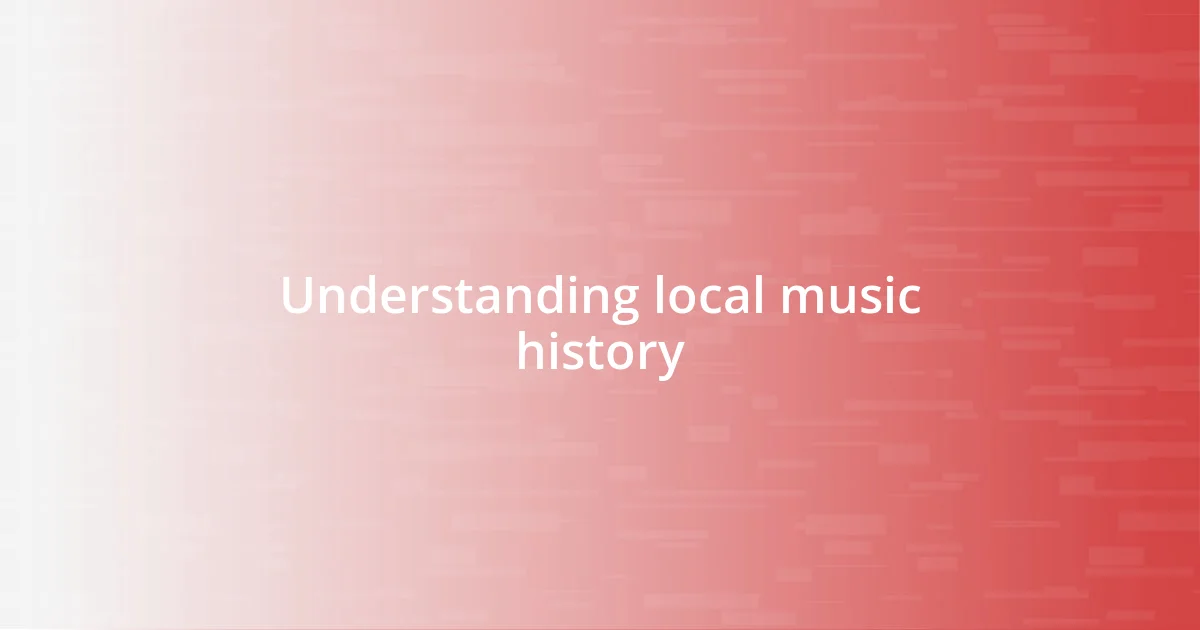
Understanding local music history
Understanding local music history is like unwrapping a beautifully layered gift. Each genre and artist tells a story shaped by the culture and experiences of the community. I remember attending a small local festival where a blues band played—seeing how the music resonated with the audience gave me a profound appreciation for our musical roots.
When I started digging into our local music scene, I discovered artists who were influenced by the socio-political landscape of our town. It’s fascinating to realize how lived experiences flow into melodies and lyrics, making the music not just sound but speak. Can you imagine how powerful it is to connect with a song that mirrors your own struggles or triumphs?
I often find myself reminiscing about the conversations I’ve had with older musicians who painted vivid pictures of their young days in music. Their stories of jam sessions in basements and the passion for creating something real reminded me that music is a living history. It’s quite moving to think about how each note played adds to our local narrative, isn’t it?
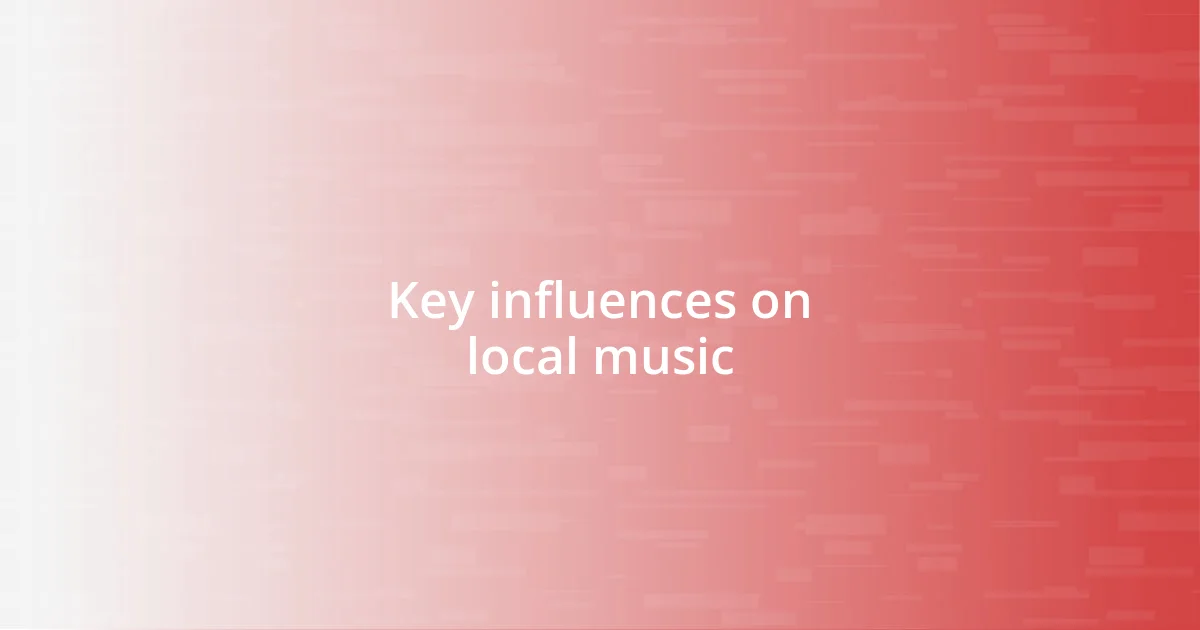
Key influences on local music
Local music is deeply influenced by a tapestry of factors, from the socio-political environment to community events that spark creativity. I remember chatting with a local singer-songwriter who shared how their music evolved in response to major changes in town. Their lyrics reflected the hopes and struggles of our community, creating a bridge between personal experience and collective memory. Each artist, in their own way, channels not just personal stories but the larger narrative of the place they call home.
Key influences on local music:
– Historical Events: Significant happenings often inspire musicians to create pieces that capture those sentiments.
– Cultural Movements: Shifts in societal attitudes can lead to new genres or revivals of existing ones.
– Local Icons: Influential artists often pave the way for emerging talents, shaping the style and direction of the local sound.
– Community Gatherings: Festivals, open mics, and jam sessions provide platforms for collaboration and experimentation, nurturing new talent.
– Personal Experiences: Individual life stories bring authenticity to music, allowing it to resonate on a personal level with listeners.

Important local music genres
The local music scene is a rich tapestry made up of various genres that reflect our unique cultural fabric. Genres like folk and blues have deep roots here, often intertwining with the stories from our past. I recall an incredible evening spent at an intimate venue where a folk artist shared songs inspired by local legends, connecting me to the place in a way I had never felt before.
Jazz stands out in my mind as another significant genre. It emerged during a period of transformation and has since flourished, thanks to the influence of local talents. I remember hearing an older gentleman describe his heartwarming experience jamming with friends in local bars, where the syncopation of jazz music seemed to lift everyone’s spirits.
Finally, I can’t overlook the rise of hip-hop in our community, which vividly captures the voices of a new generation. It speaks volumes about their experiences and perspectives. I often find myself drawn to the power of local hip-hop artists’ lyrics that reflect our current narratives—there’s something electrifying about an artist who takes the stage and pours their heart into a performance that feels both personal and universal.
| Genre | Description |
|---|---|
| Folk | Rooted in storytelling, often reflects historical and cultural narratives. |
| Jazz | Born from improvisation, it captures the essence of community collaboration. |
| Hip-Hop | Conveys modern experiences and social issues, resonating with younger audiences. |

Notable local musicians and bands
A few notable local musicians have really made an impact on our scene. One that stands out to me is a guitarist who used to play at the corner café. I remember the nights when he’d strum out old folk classics, creating a cozy atmosphere that felt like a warm hug for everyone present. Isn’t it amazing how a simple melody can bring people together?
Then there’s this indie band I stumbled upon during a summer festival. They were relatively unknown back then, but there was something infectious about their energy. Their lyrics spoke of everyday life, love, and the quirks of our town, making everyone resonate with their tales. When I hear them now on local radio, it brings back those vibrant summer nights filled with laughter and connection.
And we can’t forget the powerful voice of a local female vocalist who’s become a beacon for aspiring artists. I once attended an open mic where she performed, pouring her soul into every note. Her passion was palpable; you could see it in the audience’s faces as they completely absorbed her story. It makes me wonder: how many future stars are out there waiting for their moment to shine? I hold onto the hope that our local scene continues to nurture that talent for years to come.
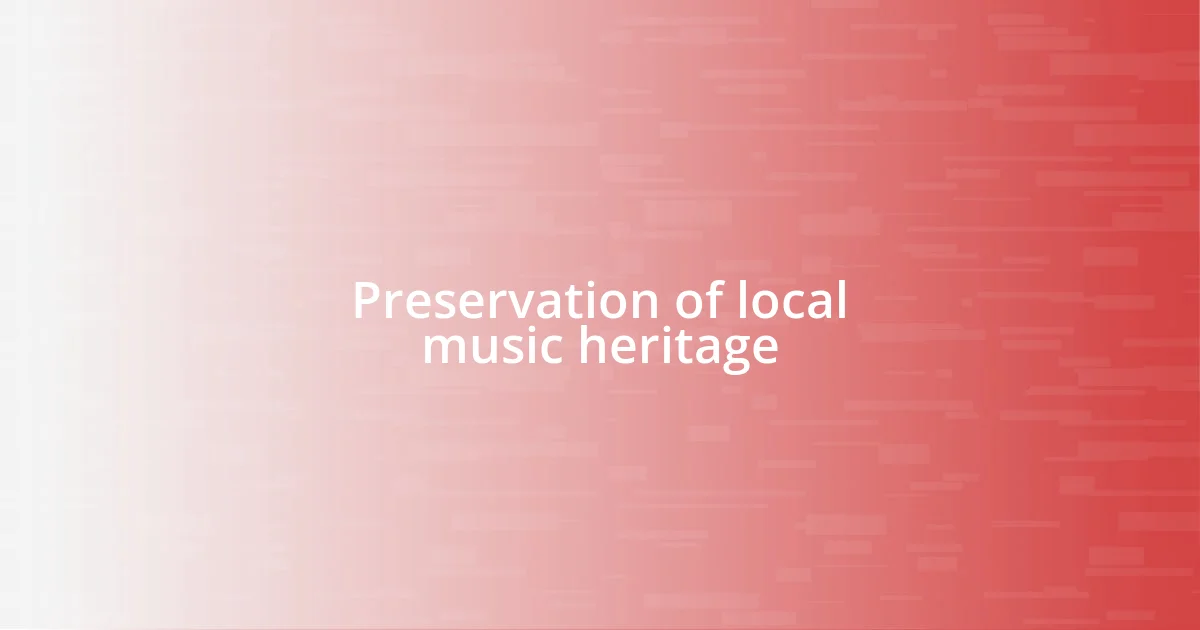
Preservation of local music heritage
Preserving local music heritage is vital in keeping our cultural identity alive. I remember attending a workshop where community members gathered to discuss how we could document and celebrate our music history. It was heartwarming to witness people sharing old recordings and stories; you could sense the pride in preserving the sounds that have shaped our community. How often do we reflect on the importance of these traditions?
One project that struck a chord with me was a local initiative to restore old vinyl records from beloved musicians who once played in our town. Volunteers came together to digitize these gems, ensuring that future generations could experience the magic of music that resonates with our roots. Whenever I hear those crackling sounds, I’m transported back to the vibrant performances I’ve seen in small venues, and it makes me appreciate how delicate and precious our musical heritage truly is.
I often find myself contemplating how local music festivals contribute to this preservation. They not only showcase our rich genres but also invite younger artists to participate, blending traditions with innovation. I remember one festival where a young artist infused traditional folk melodies with modern beats, bridging the gap between generations. Isn’t it essential for us to keep this dialogue going, allowing the past to inform our present and future? It’s a beautiful reminder that while music evolves, the heart of our community remains firmly rooted in its history.
